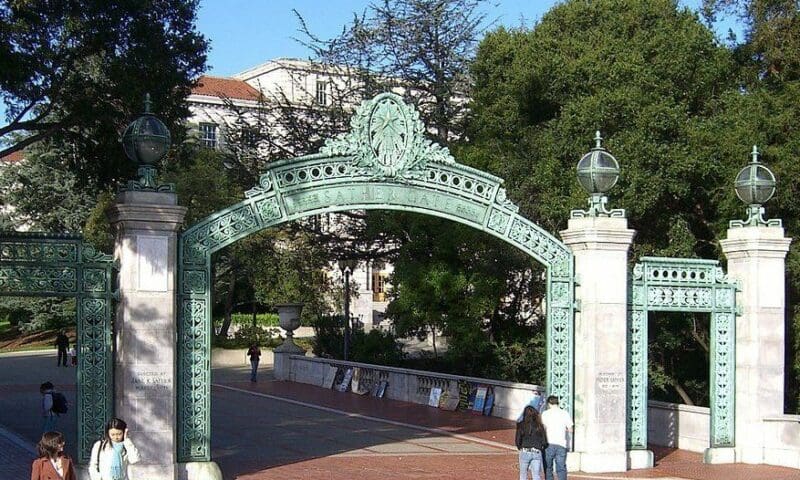
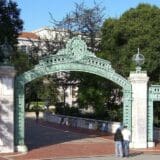
In the Public Interest is happy to be kicking off 2016 with good news. Pushed by students and workers, the University of California has announced it will divest from private prison companies such as Corrections Corporation of America (CCA) and the GEO Group.
This is yet another win for criminal justice reform—Columbia University divested from CCA last summer. The private corrections industry, which makes more profit when more people are in the system, is an obstacle to the changes many of us want to see.
The industry doesn’t want change. An executive with GEO Group, the second largest private prison operator in the U.S., recently boasted that the country would continue to “attract” crime. He shared the “good news” to investors: “The reality is, we are a very affluent country, we have loose borders and we have a bad education system.”
Private prison companies claim to do a better job more cheaply,
» Read more about: University of California Divests from Private Prison Industry »
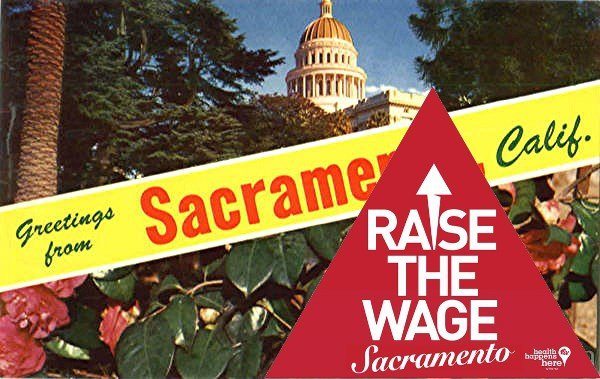
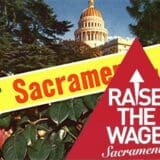
On December 21, 2015, Organize Sacramento and Raise the Wage Sacramento filed documents with the city clerk to gather 21,503 valid voter signatures necessary to place a minimum-wage measure on this year’s November ballot. The measure would boost the city’s minimum wage to $15 by 2020, peg it to the Consumer Price Index and let workers earn paid sick leave.
Activists: City-approved wage hike is too low and too slow.
Two months earlier the city council, on a 6-3 vote, had approved a minimum-wage ordinance bump to $12.50 by 2020. For Organize Sacramento and Raise the Wage Sacramento, though, that was too low and slow, spurring the current ballot drive for a $15 minimum wage. The Democratic Party of Sacramento County, Restaurant Opportunities Center United , Capital Region Organizing Project and Center for Workers’ Rights also back the measure.
» Read more about: Sacramento’s Minimum-Wage Rumble Begins »


Fred Hiatt, the Washington Post’s editorial page editor, has fired columnist Harold Meyerson, one of the nation’s finest journalists and perhaps the only self-proclaimed socialist to write a weekly column for a major American newspaper during the past decade or two.
At a time when America is experiencing an upsurge of progressive organizing and activism — from Occupy Wall Street, to Black Lives Matter, to the growing movement among low-wage workers demanding higher minimum wages, to Bernie Sanders’ campaign for president — we need a regular columnist who can explain what’s going on, why it’s happening, and what it means.
More than any other columnist for a major U.S. newspaper, Meyerson provided ongoing coverage and incisive analysis of the nation’s labor movement and other progressive causes as well as the changing economy and the increasing aggressiveness of big business in American politics.
» Read more about: Washington Post Sacks Columnist Harold Meyerson »
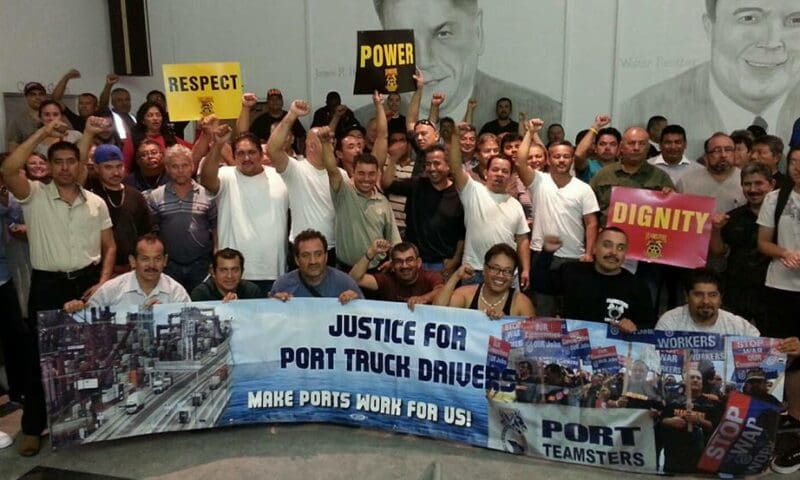
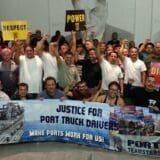
Historians may remember 2015 as the year of the minimum wage — and for good reason. Twenty-one states and multiple cities raised the minimum wage in the past 12 months, scarcely two years after the “Fight for $15” was dismissed as a pipe dream by some observers. The past year also saw other major advances for working Americans. Here are ten of the most important:
1) Bottoms Up: L.A. Minimum Wage Increase Caps Historic Year for Low-Wage Workers
This summer the City of Los Angeles enacted the most far-reaching minimum wage increase of any municipality in America. L.A. County did the same soon after, which means that over the next five years nearly one million people will see their pay rise to $15.37 an hour. They will also be covered by some of the strongest wage theft protections in the nation, ensuring they actually get the increases mandated by law.
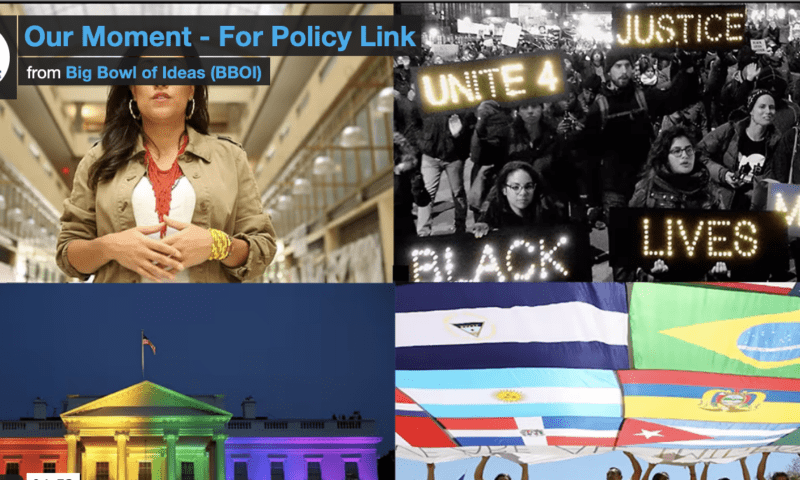

The end of the year is traditionally a time for reflection, and in that spirit we bring you “Our Moment,” a short video that reflects on some of the defining moments in the social justice movements of our time.
The video, featuring words and performance by poet Mayda de Valle, first premiered at the Equity Summit 2015 in Los Angeles, and is now being widely shared on social media. It was produced for PolicyLink by Wyatt Close and Big Bowl of Ideas and directed by Jon Sautter.
Info about Equity Summit 2015 can be found here.


Love. Joy. Peace. That’s the message of the season. From carols to holiday cards to street signs, even shopping mall windows. These words hover next to the pervasive images encouraging us to buy, but somehow they persist despite the maze of mercantile messages, because they are the deep longings of human beings.
“No justice, no peace!” is what workers and activists often chant on picket lines. It turns out that without climate justice, we will also have no world peace. A recent Los Angeles Times story on El Niño and its potential “long-distance” or “teleconnected” effects quoted researchers arguing that “it doubles the risk of war in much of the Third World.”
Our military accounts for 80 percent of all the fossil fuels consumed by the U.S. government.
Peace activists have long identified war and the preparations for it as a major source of human-caused climate change.
Sebastian Alonzo graduated into “journeyman” status a couple of Fridays ago at the Iron Workers union hall in Norwalk. The 26-year old, who struggled to make it out of high school, completed the five-year training program and now will make top wage – about $33 an hour – in his trade.
“It’s the best achievement I’ve accomplished in my life,” he said, pointing out that his family came there that night to cheer him on.
As part of the graduation ritual, Alonzo and 35 other new journeymen stood in front of a packed audience whose members had traveled from across Los Angeles and Orange Counties to watch the proceedings. The graduates this night included men and women, whites, Latinos, African Americans and Asians. The group – as the cliché goes – looked like America.
To embrace someone as a brother or a sister is to incur obligations that are not easily discarded. » Read more about: Finding Grace at Local 416 »
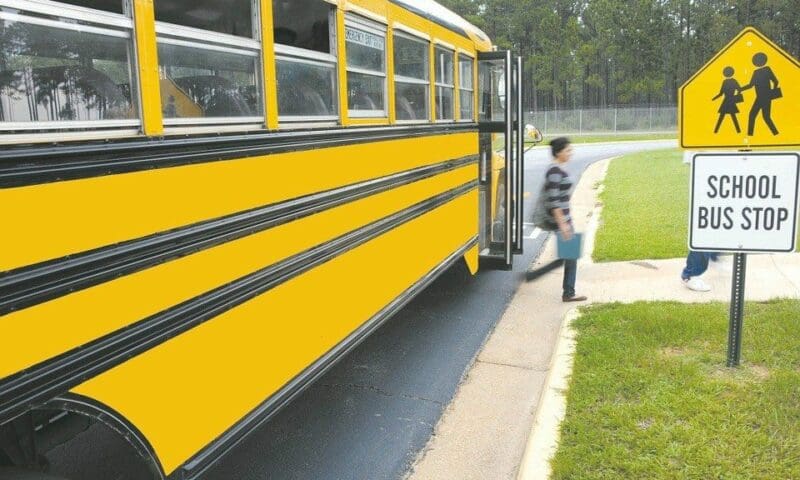

Get this. In some states, charter school operators can purchase school buildings from public school districts — using taxpayer money. That’s right. The public pays twice for a building it no longer owns.
This scheme and many others are detailed in the National Education Policy Center’s new research brief on charter school policies. Through a study of policies from across the country, Bruce Baker and Gary Miron reveal how many charter operators use existing laws to profit from the privatization of public assets.
Their conclusion: Many current policies allow new actors into public education who skim profits from the system, pocketing money that might otherwise be spent on direct services for children.
These policies have serious costs. In Florida for example, a recent analysis by the Associated Press found that now-closed charter schools in 30 school districts had received more than $70 million in taxpayer money for capital needs.
» Read more about: How Charter Schools Skim and Scam Public Money »
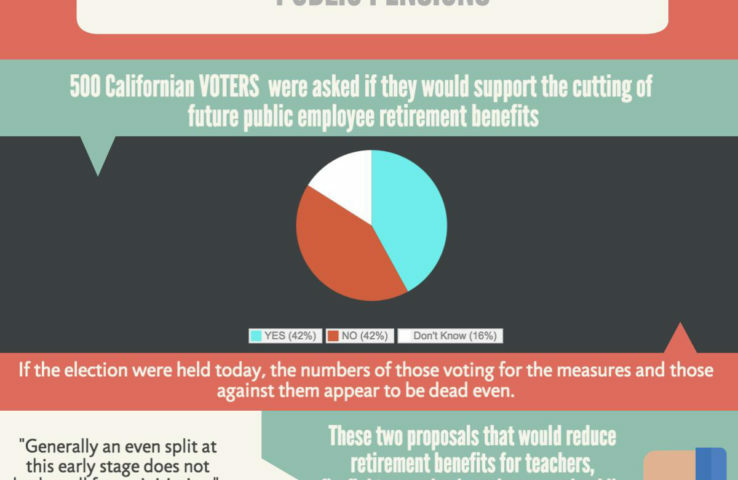
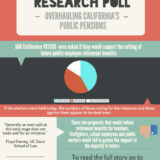
See Dan Braun and Bill Raden’s report on the Capital & Main poll.
Read other Capital & Main stories on pension-cutting ballot proposals in California.
» Read more about: Infographic: Public Pension Ballot Proposals' Tepid Support »